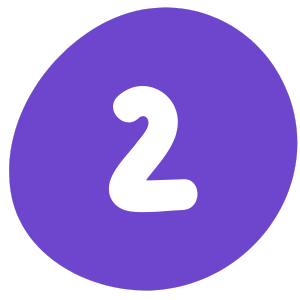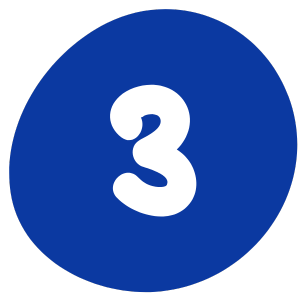Objectives
The Digital Services Act regulates online intermediaries and platforms such as marketplaces, social networks, content-sharing platforms, app stores, and online travel and accommodation platforms. Its main goal is to prevent illegal and harmful activities online and the spread of disinformation. It ensures user safety, protects fundamental rights, and creates a fair and open online platform environment.
Here are five key ways in which the DSA is making the internet a better, safer place for all its users:
 | Protecting the users from dangerous goods and illegal content. There is no consistent flagging system for when you see illegal content, goods or services online. The DSA makes it easier to report illegal content (such as hate speech) and goods by introducing mandatory user-friendly flagging systems. |
 | Helping us tackle cyberbullying. Cyberbullying and cyberviolence are an increasing problem for both children and adults. The DSA introduces stronger protections for people targeted by online harassment and bullying. This includes making sure any non-consensual private images and other abusive, illegal content that are shared can be quickly reported by users. |
 | Limiting targeted advertising. The DSA introduces transparency around advertising, making sure it is clearly labelled, and information is available about who is placing the ad and why users are seeing it. It also introduces a ban on certain types of advertising (advertising based on sensitive data categories such as sexuality, religion or race), and a complete ban on targeted advertising of children based on their personal data. |
 | Helping users to understand and challenge content moderation decisions. If a platform decides to take down something you have posted online, it might hard to contest that decision. The DSA will allow to challenge platforms through a complaint mechanism. |
 | Simplifying terms and conditions. The DSA will ensure that platforms provide concise and unambiguous summaries of their terms and conditions in the local EU language, so that users are better aware of what they are accepting. |
VLOPs and VLOSEs
In addition, the European Commission has designated a list of very large online platforms (VLOPs) and search engines (VLOSEs). These are online platforms and intermediaries that have more than 45 million users per month in the EU. The DSA includes specific rules for them, as they must abide by the strictest obligations.
Enforcement of the DSA
| Digital Service Coordinators (DSCs) | How can the European Commission make sure that the obligations in the DSA are being enforced? The national Digital Service Coordinators (DSCs) are responsible for supervising, enforcing and monitoring the DSA, together with the Commission. Each Member State has to designate and empower a Digital Services Coordinator (DSC), who is responsible for all matters relating to the application and enforcement of the DSA in that country. The list of designated DSCs in all EU Member States is available here. |
|---|---|
| Trusted Flaggers | Another important task of the Digital Services Coordinators is to award the status of “trusted flaggers” to entities based in their Member State. Trusted flaggers are civil society organisation that are particularly expert at detecting certain types of illegal content online, such as hate speech or terrorist content, and notifying it to the online platforms. The notices submitted by them must be treated with priority as they are expected to be more accurate than notices submitted by an average user. The list of appointed Trusted Flaggers is available here. |
The latest Commission efforts to boost online safety for children and young people under the DSA
In July 2025, the European Commission presented guidelines on the protection of minors under the DSA, as well as a prototype of an age-verification app. Together, these measures aim at ensuring that children and young people can enjoy the opportunities that the online world offers, such as learning, creativity and communication, as well as at minimising the risks they face online, including exposure to harmful content and behaviours.
| Guidelines on the protection of minors | The guidelines on the protection of minors aim to ensure that children and teenagers enjoy high levels of privacy, safety and security on online platforms. Their development relied on an inclusive and extensive consultation period, including with children and young people. Among other things, the guidelines provide recommendations to address addictive design, cyberbullying, harmful content, and unwanted contact from strangers. |
|---|---|
| Age verification solution | The blueprint of the age verification app is user-friendly and protects privacy, setting a ‘reference standard' in age verification online. It will, for example, allow users to easily prove they are over 18 when accessing restricted adult content online, while remaining in full control of any other personal information, such as a user's exact age or identity. It prevents identity tracking. To prevent linkability of transactions, proofs are issued in batches, for one-time use only. The age verification app will be tested and further customised in collaboration with Member States, online platforms and end-users. |
The DSA and Better Internet for Kids
The DSA explained: measures to protect children and young people online
Are you curious about how the EU protects you online? The new rules introduced in the DSA aim to create a fairer and safer online world. These rules address issues such as cyberbullying, illegal content, the simplification of terms and conditions, and many others.
This booklet, available in all EU countries, explains in simple terms what the DSA has put in place to protect children and young people under the age of 18. You can download it in all EU languages from the Publications Office of the European Union.
The Guide to apps
Our guide to apps aims to provide key information about some of the most popular apps, social networking sites and other platforms which are commonly being used by children and young people (and adults) today. We have included a special tag for VLOPs and VLOSEs, so that you can monitor more closely if they are suitable for children and young people, what is the minimum age required, and if there is an age verification system in place.
Further information and resources
Learn more about the DSA and DMA (Digital Markets Act)
Find out how the DSA can make the online world safer and protect your fundamental rights
View the list of designated Very Large Online Platforms (VLOPs) and Very Large Online Search Engines (VLOSEs)
View the list of appointed Trusted Flaggers
View the list of designated Digital Services Coordinators (DSCs) in all EU Member States






